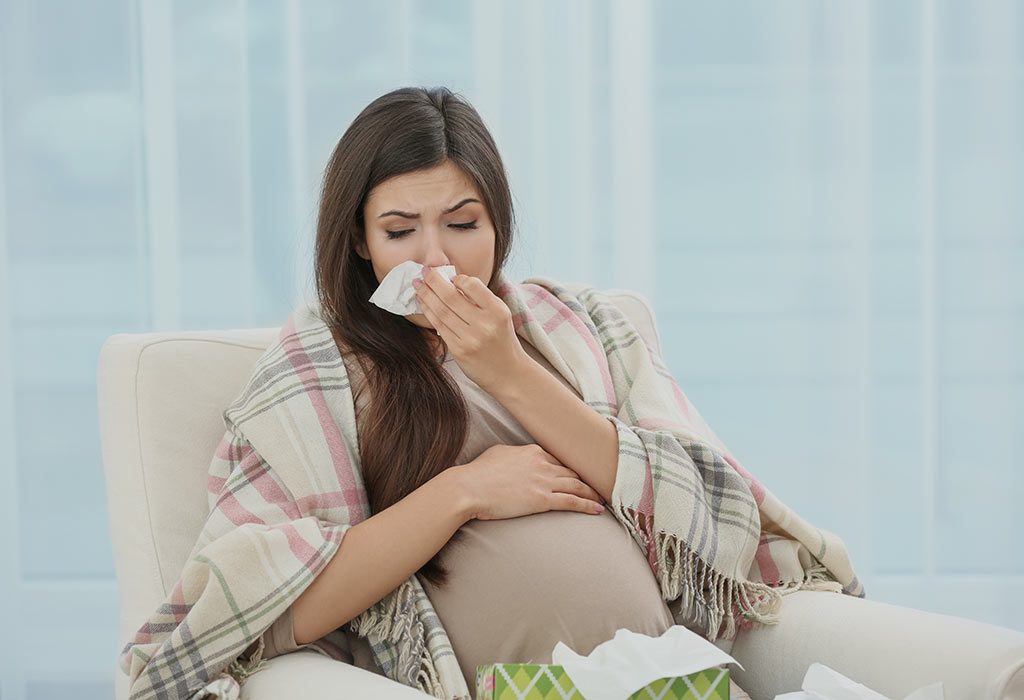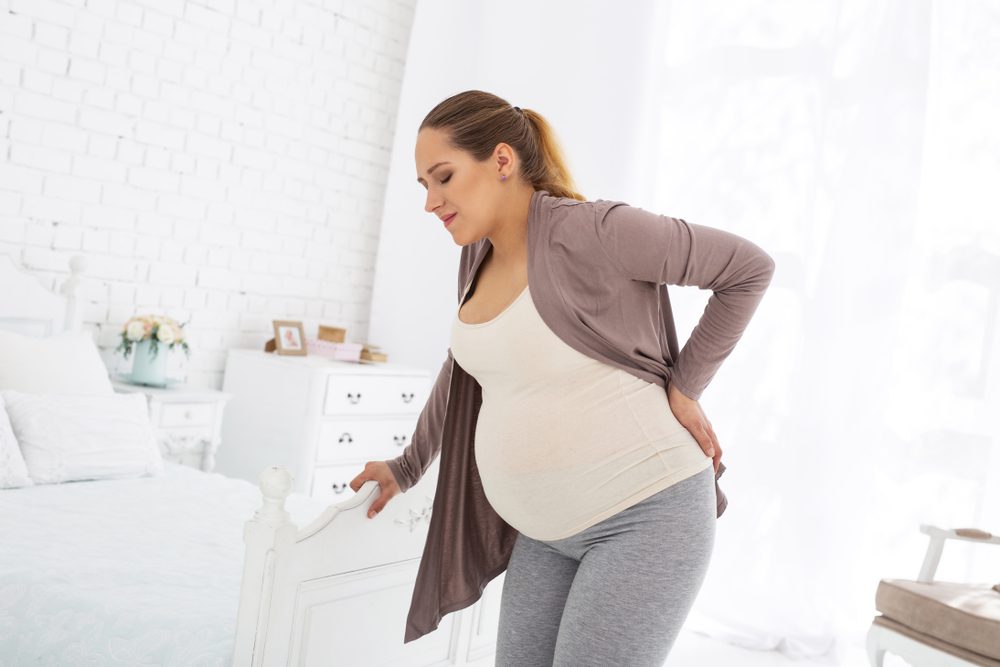If you’re pregnant, you may be wondering if flu-like symptoms before labor are dangerous. Knowing the difference between a virus and early labor is important to get the appropriate treatment. In most cases, flu-like symptoms before labor are no cause for concern. However, there are a few signs that you should watch out for. Keep reading to learn more.
Flu-Like Symptoms Before Labor
It’s not uncommon for pregnant women to experience flu-like symptoms during their last trimester of pregnancy, especially if they are carrying multiple babies or having a high-risk pregnancy. These symptoms can include fatigue, headaches, and body aches—similar to the flu’s signs. Women who have received a flu vaccine may experience less severe symptoms. Fortunately, these symptoms tend to be milder than full-blown influenza, but they can still be uncomfortable and unsettling.

What Causes Flu-Like Symptoms Before Labor?
Often flu-like symptoms are caused by the hormones your body releases during labor. These hormones work to relax your muscles and ligaments in preparation for childbirth. As those muscles relax, they become more susceptible to aches and body pain, which can feel similar to how you might think if you were coming down with the flu. In addition, the relaxation of your gastrointestinal tract may cause nausea or diarrhea as a pre-labor symptom.
When Should I Expect Flu-Like Symptoms Before Labor?
The timing of when flu-like symptoms will appear varies from person to person; however, most women begin experiencing them between 24 hours and two weeks before their due date. If your due date has passed and you are still feeling flu-like symptoms, it’s important to contact your doctor immediately so they can assess whether or not you have gone into labor.
How Long After Flu-like Symptoms Does Labor Start?
Every woman is different, and every pregnancy is unique, so it’s impossible to accurately predict when labor will start exactly after flu-like symptoms have appeared. Generally speaking, most women who experience these flu-like symptoms should expect labor within two weeks—sometimes even sooner! Of course, if your doctor has given you specific instructions regarding your due date or other factors related to your pregnancy, you should stick with those guidelines first and foremost.

Having the Flu When You Go Into Labor
First and foremost, call your healthcare provider as soon as possible. Your doctor will discuss your symptoms and advise whether or not it’s safe for you to deliver at home or if they would prefer you go to the hospital. They may also recommend antiviral medication or other treatments that can help reduce any risks associated with having the flu while in labor.
When in doubt, always err on the side of caution and head to the hospital. This is especially true if your baby is premature, which could increase its risk of complications due to its underdeveloped immune system. Additionally, some hospitals may require a negative COVID-19 test before allowing visitors inside during labor and delivery, so review all requirements before heading out!
No matter where you decide to deliver, it’s important that those present take extra precautions against spreading germs, such as wearing masks and washing their hands frequently. If possible, ask family members who are sick or feel like they may be coming down with something not to attend the birth—this includes partners and siblings! Everyone must take responsibility for preventing illness from spreading throughout the birthing room.
How Long Were You Nauseous Before Labor?
The duration of pre-labor nausea varies from person to person; some women may only experience mild nausea, while others may suffer from extreme cases that last several days or more. Generally speaking, pre-labor nausea usually lasts around 24 hours before labor begins but can range anywhere from a few hours up to several days beforehand. It is important to note that some women do not experience any pre-labor nausea and go into labor normally.
What Causes Pre-Labor Nausea?
During the third trimester of pregnancy, your body’s hormone levels start to fluctuate to ready your body for labor. One of these hormones is oxytocin, which helps stimulate uterine contractions during labor. Unfortunately, oxytocin can also cause nausea and vomiting as it increases its concentration in the bloodstream. In addition, as the baby moves further into the pelvis area, pressure on your stomach may also contribute to pre-labor nausea.
What Does Labor Feel Like?
Labor is divided into three stages. During each step, a mother may experience different sensations ranging from mild discomfort to extreme pain. It is important to remember that every woman experiences labor differently, and no two labors are alike.
Stage 1 – The First Stage of Labor
This stage is typically the most prolonged phase and can take anywhere from 8-14 hours on average for first-time mothers. During this stage, contractions become longer, stronger, and more frequent as the cervix gradually opens up (dilates). Contractions begin during this stage cause the abdomen to tighten and then relax in a wave-like pattern as the baby descends through the birth canal.
As labor progresses, women may experience pressure or cramping in their lower back or pelvic area between contractions, making walking difficult. Some women also feel nauseous during this phase due to hormones released during labor and anxiety over the upcoming birth.
Stage 2 – The Second Stage of Labor
This stage begins when the cervix is dilated (ten centimeters) and ends with the delivery of your baby’s head. Contractions become even more vital during this phase and follow a regular pattern, with about one contraction every five minutes lasting for about 60 seconds each time. Pushing usually happens involuntarily, but some mothers find that consciously moving helps them cope better with contractions and assists their baby’s descent through the birth canal.
Women often describe pushing as a feeling similar to having bowel movements or urinating but much more intense due to increased pressure on their abdomen caused by their baby’s head moving down toward delivery. Most women need reassurance to keep pushing until they are instructed otherwise by their doctor or midwife.
Stage 3 – The Third Stage of Labor
This stage begins after your baby has been born and ends with the delivery of your placenta shortly after that (typically within 15 minutes). Mothers may still have some muscular contractions during this phase, but these should be less painful than in earlier stages since there is no more downward pressure from the baby’s head being pushed through the birth canal. This is also when many mothers find themselves overwhelmed with joy and relief at finally meeting their new bundle of joy.

Subtle Signs You are in Labor
Cramping and Lower Back Pain
The most common signs of labor include cramping and lower back pain. Cramps during labor can feel much like menstrual cramps, but they tend to come in waves that last around 30-60 seconds and can be accompanied by a feeling of pressure in your lower abdomen or pelvis area. Lower back pain is also common during labor. This can feel like an ache or even like a stabbing sensation. It often comes on suddenly and is usually more intense than regular back pain experienced during pregnancy.
Vaginal Discharge
Another sign of labor is the presence of vaginal bleeding that is pinkish or blood-tinged in color—this indicates that the mucus plug covering your cervix throughout your pregnancy has begun to dislodge. This means that your cervix is dilating, which must occur before you give birth. However, this sign alone does not necessarily mean that you are going into labor pregnancy; instead, it’s one indication among many others that you should pay attention to as your body prepares for your baby’s arrival.

Safe Home Remedies for a Cold During Pregnancy
Humidifier or Steam Vaporizer
A humidifier or steam vaporizer effectively soothes a sore throat and reduces congestion while adding moisture to your home’s air. The humidity can help to thin mucus and make breathing easier. They can be purchased at most major retailers or online if you don’t have one at home. Follow all instructions carefully regarding cleaning and maintenance to avoid potential health issues.
Drink Plenty of Fluids
Staying hydrated is important during any illness, especially during pregnancy, when dehydration can lead to complications like preterm labor or low birth weight for your baby. Be sure to drink plenty of fluids, including water, juice, tea, and broth, throughout the day to keep your body hydrated and healthy. Avoid caffeinated beverages as they can increase dehydration and make symptoms worse.
Rest & Sleep
When fighting a cold during pregnancy, getting enough rest is essential for recovery. Try your best to get plenty of sleep each night and take naps during the day if needed. Your body needs time to heal from a cold, so permit yourself to take it easy while still being mindful of how much time you spend lying down—it’s not recommended that pregnant women lie flat on their back for long periods due to potential complications with blood flow restriction so try using pillows or wedges when needed to keep yourself comfortable while resting upright if possible.

Final Thoughts
Staying healthy during pregnancy is so important, and flu-like symptoms can be a significant hindrance when it comes to that. Although going into labor pain can mimic flu-like symptoms, paying attention to the signs of true flu-like symptoms before labor begins and taking steps to reduce the risk of complications for you and your baby.
Frequently Asked Questions
Is it normal to have flu symptoms before labor?
You may experience the following when labor approaches: flu-like symptoms (nausea or diarrhea, fatigue) and a burst in energy.
What happens if you have the flu when you go into labor?
Pregnant women who get the flu are at a higher risk for complications like preterm labor and birth, which can happen as early as 37 weeks into pregnancy. They also have an increased chance of hospitalization or death compared to non-pregnancy periods.
When is flu dangerous during pregnancy?
The flu is not just a cold. It can lead to serious medical complications, like lung infection and even death in some cases if you’re pregnant! Pregnancy makes the risk of these outcomes much higher. Hence, expectant mothers need to get vaccinated before they become ill or go back into labor after receiving their shot at least two weeks early because no symptoms will show up until then (the wearer cannot spread the virus through coughs).
Will my body go into labor if I have a cold?
Yes, it’s both possible and not uncommon to give birth with anything from a head cold (in which case you might die) up to bubonic plague. And while there may be some risks involved, especially if your immune system isn’t working correctly or has been compromised by another illness like cancer, you’ll still come out on top: healthy mother AND baby!




